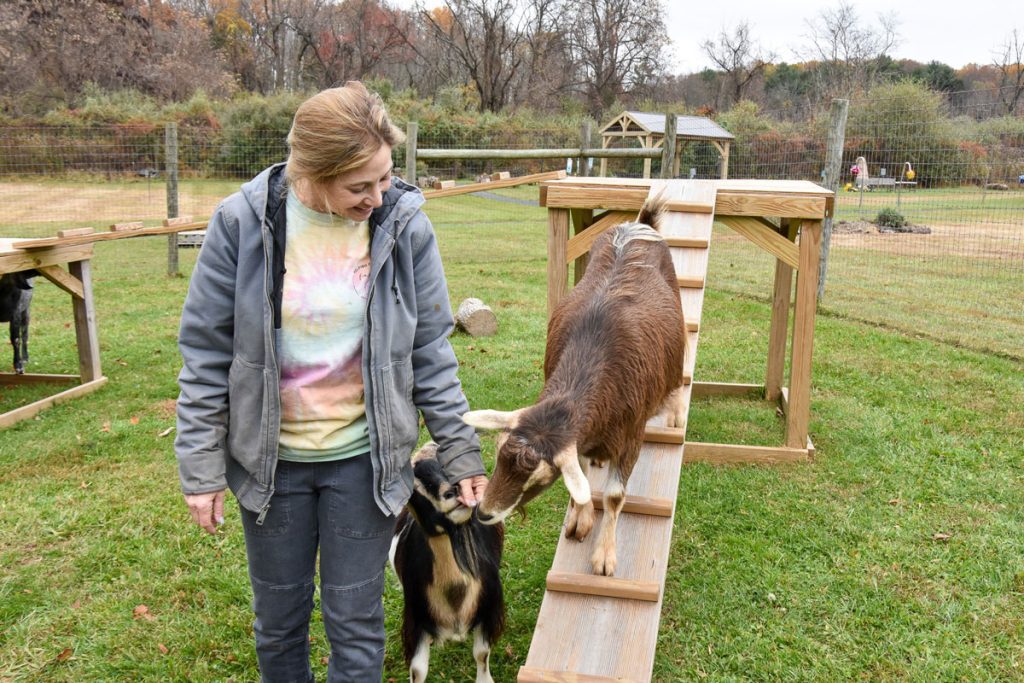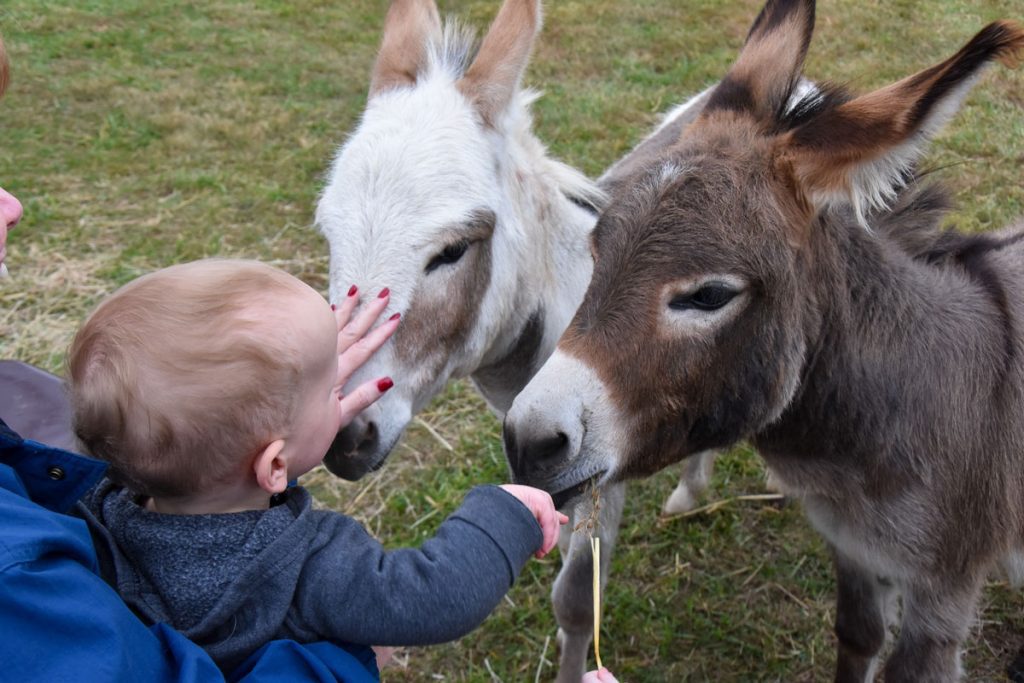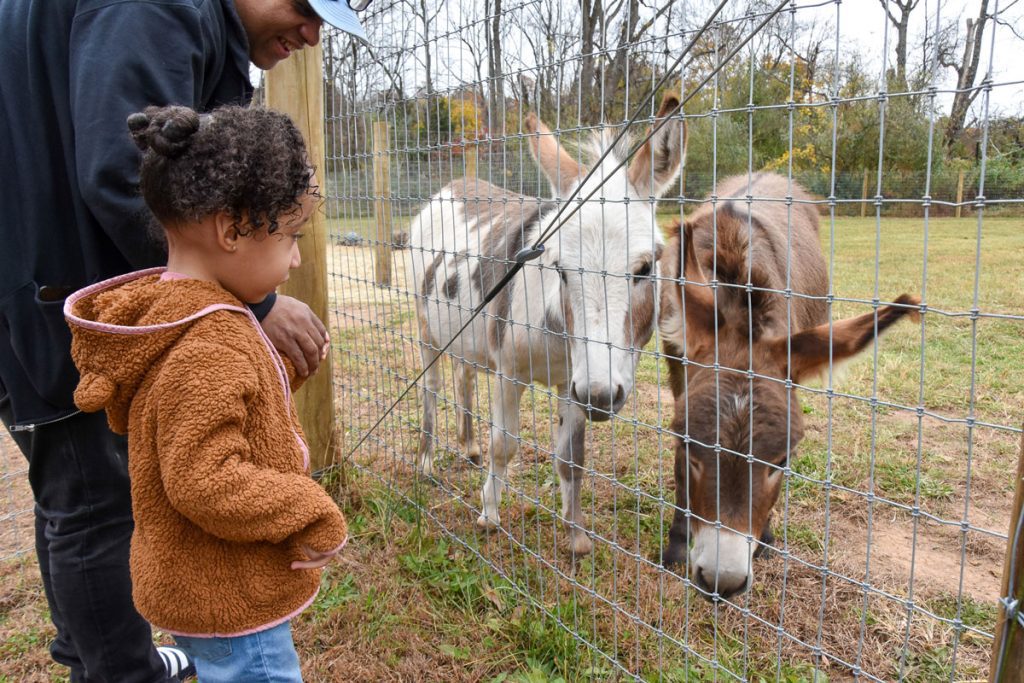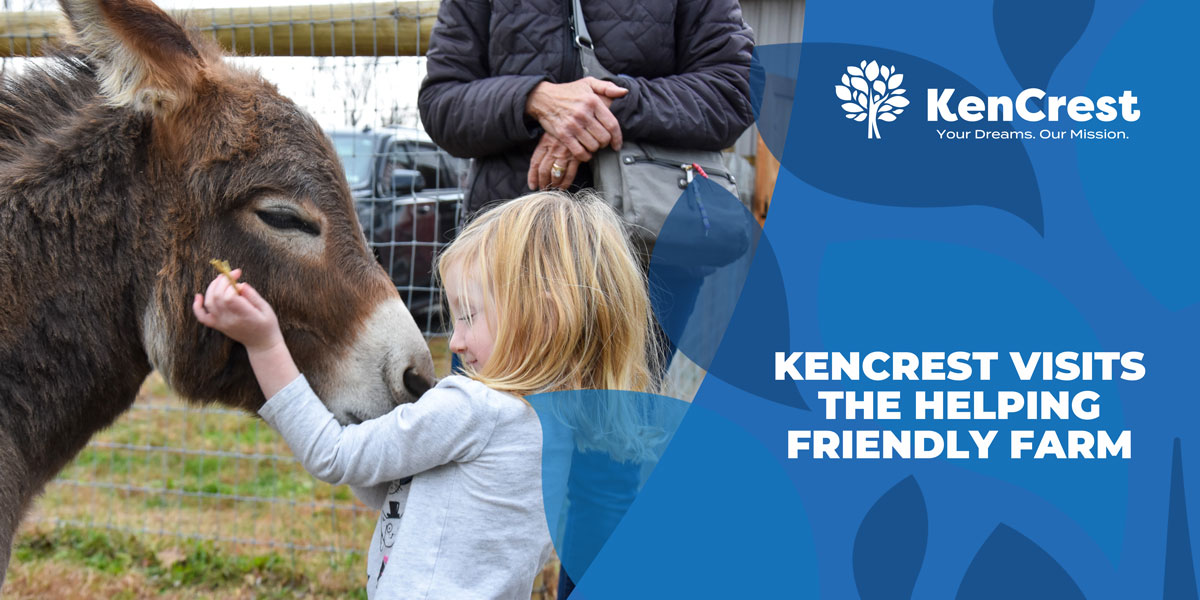
A child supported by KenCrest meeting one of the donkeys at the Helping Friendly Farm. // Photo by Aubrey Hoffert.
KenCrest’s Early Intervention program visited the Helping Friendly Farm to witness the power of animals, nature, and sensory exploration.
By Sydney Kerelo
In 2022, Jessica Zander and her family moved from sunny California back to the East Coast with a dream to open a farm dedicated to enhancing the lives of children with disabilities, whether physical or intellectual, who need Early Intervention support through the power of animals, nature, and sensory exploration.
And they did just that.
Founder and Executive Director Jessica Zander opened the Helping Friendly Farm, a 501© non-profit based in Bucks County, PA, over a year ago and has since acquired two donkeys, seven goats, multiple chickens, an outdoor gardening area, and several indoor sensory rooms.
In October, KenCrest’s Early Intervention program visited the Helping Friendly Farm with many of our families and saw firsthand the impact nature can have. From running around the goat enclosure to picking lettuce and playing in the sensory rooms, each child who visited left feeling happier.
The Helping Friendly Farm was inspired by Zander’s daughter who needed Early Intervention supports like occupational and speech therapy as a young child, and she noticed that there weren’t any open play environments around where both of her children could take off their shoes and run around.
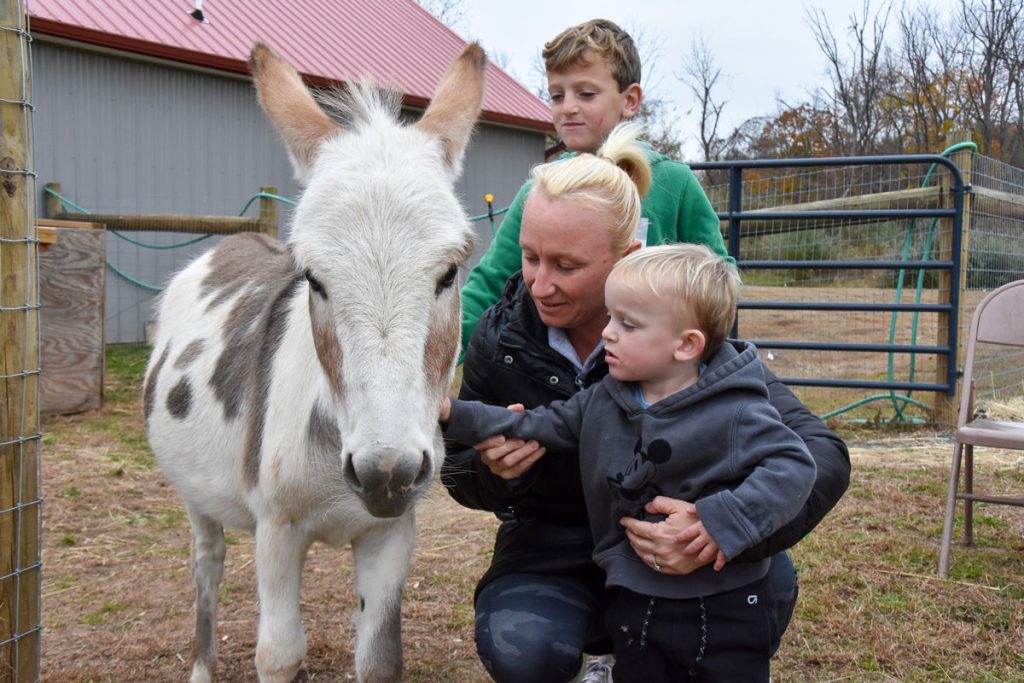
A KenCrest family visiting the Helping Family Farm. // Photo by Aubrey Hoffert
“I thought, why isn’t there a place where siblings can play together,” says Zander. “I always knew I wanted to have an indoor play sensory area, and I’ve always loved animals. But when we were living in California, my son became very sick with an autoimmune disease, so we stopped going outside as much and started volunteering. I knew being in nature was healing, so I wanted to create a farm where my children could play safely, and that’s how the idea for the farm began.”
For more than 20 years, Zander has worked in special education; she started her career as a special education teacher with AmeriCorps in South Bronx, New York. During her tenure there, she frequently noticed how her students would jump an average of two grade levels per year in reading and writing because of her ability to combine teaching with sensory exploration and connections with nature.
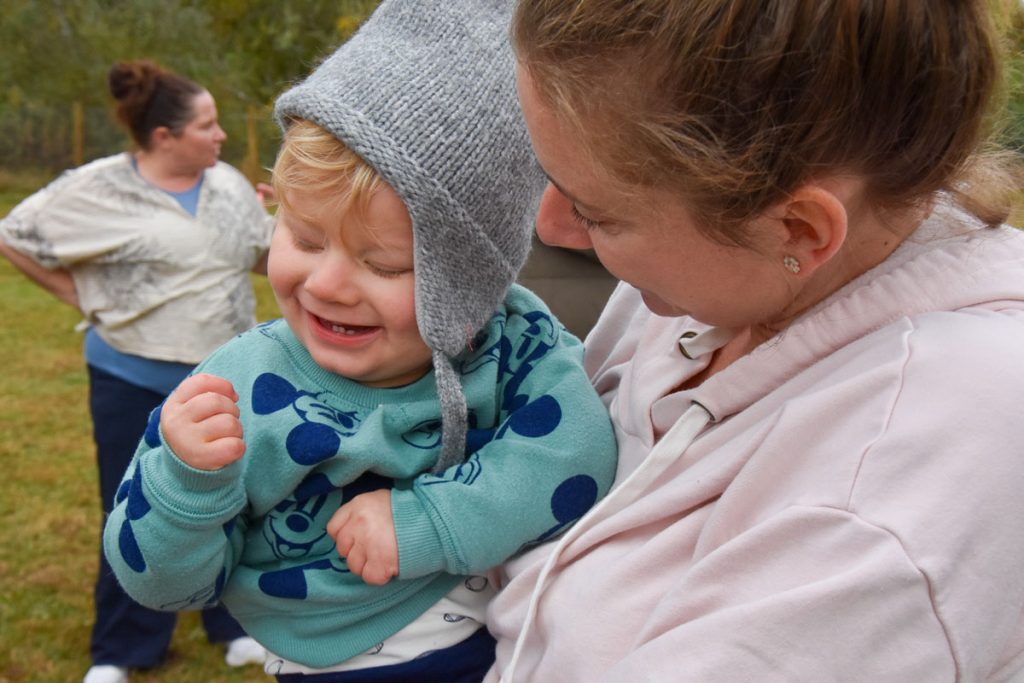
Photo by Aubrey Hoffert
She went on to work for a mental health-based school in Manhattan and TEAM Academy in Newark, NJ, before moving to California; where she launched a yoga and meditation program in two schools in the San Francisco Bay Area, and worked with the Silicon Valley Down Syndrome Network.
While California was beautiful, it didn’t offer everything the family wanted, like farmland to open the Helping Friendly Farm. So, they decided to make the cross-country move back to the East Coast and landed in New Hope, PA.
“I just had this idea in my mind there would be this place of freedom for kids, where they could have all the different modalities, like sensory and animal play, that I saw to be so important in their growth,” says Zander. “I already knew there was a power that nature has, but to be here and to see how it is changing these kids’ behavior is pretty amazing.”
The Friendly Helping Farm offers many soothing attractions, like getting close and personal with the donkeys, Elvis and Moon, or playing with the “G.O.A.T.s”―Jordan, Wayne Gretzky, Bolt, Tiger, Parlay, Babe and Brady, all named after the “Greatest of All Time.”
FROM LEFT TO RIGHT: Jessica Zander, the Founder and Executive Director of Helping Friendly Farm walking her goat and a few children supported by KenCrest playing with the donkeys. // Photos by Aubrey Hoffert.
Visitors can even pick their own vegetables from the farm’s gardens and eat them right there! Zander’s gardens use permaculture called hügelkultur, a way for gardeners to work as closely as possible with the Earth’s resources in order to grow food. The garden beds are made from felled trees around the farm, and when they start decomposing, they release all the nitrogen that helps to regrow new things, in essence, recreating the forest floor.
“They can pick herbs they can eat, pull carrots, and even try spinach,” says Zander. “In January, I will start the seeds in our greenhouse, usually squash, cucumbers, carrots, tomatoes, snap peas, and other herbs. Volunteers can then come in to help, and a lot of the time, with visiting groups, we’ll make it a fun game where they must find something that smells like pickle dill, and they’ll have to find it. It’s a whole sensory garden.”
As every season changes, different disability groups visit and help dry out the herbs, grind them up, and mix them with Himalayan salt to be sold at the farm. They also create beautiful, beaded bracelets that spell out the animal’s names, which can also be purchased as a donation.
KenCrest is one of many Early Intervention programs to visit the Friendly Helping Farm. Zander has had many visits from several Intermediate Units (IU) from Bucks and Montgomery counties, several classrooms, and autistic support groups.
People can visit the farm year-round, with their winter pricing of $25 per person, for two hours to see the sensory barn and play with the animals. While in the spring, summer, and fall, guests can visit for $30 per person and explore the barn, animals, and gardens.

